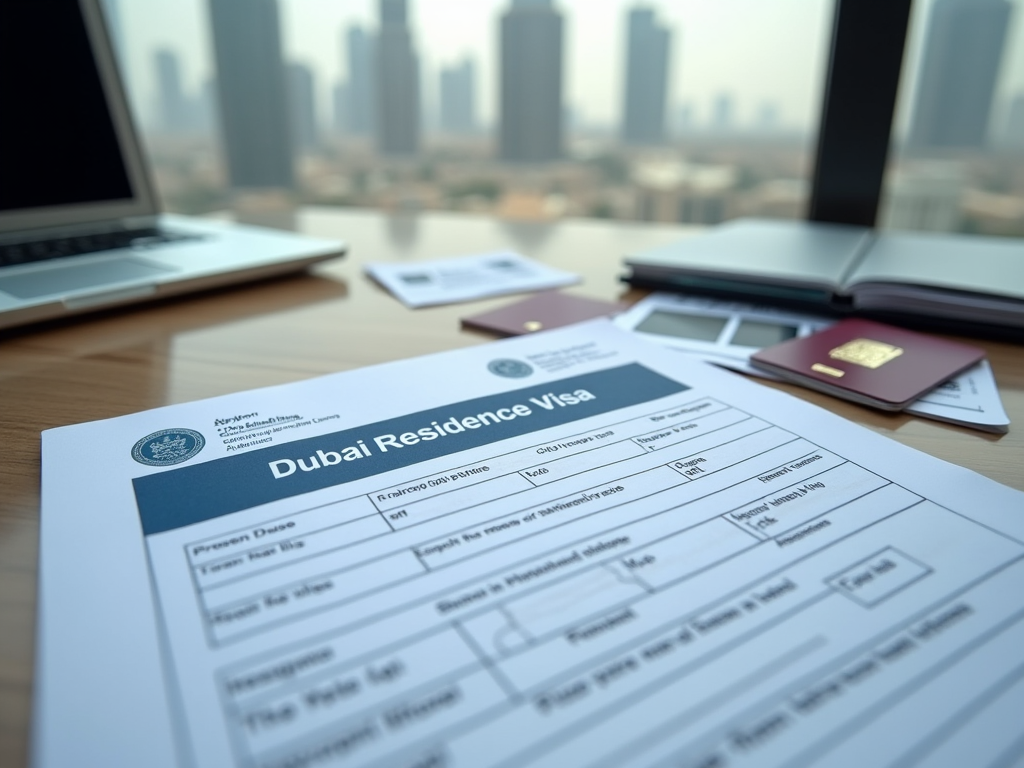Common Challenges and Solutions in the Dubai Residence Visa Application Process
The application process for a Dubai Residence Visa can be daunting due to various challenges that applicants may encounter. From complicated paperwork to understanding the legalities of residency, these hurdles can significantly delay or jeopardize the outcome of one’s application. However, familiarizing oneself with these common challenges and their corresponding solutions can streamline the entire process. This article aims to shed light on key obstacles faced by applicants and offers practical solutions to overcome them, ensuring a smoother journey towards securing residency in one of the most vibrant cities in the world.
Complex Documentation Requirements

One of the primary challenges in the Dubai Residence Visa application is the complex documentation requirements. Numerous documents are needed, which can often be overwhelming for first-time applicants. These typically include a valid passport, photographs, a health card, and a notarized lease agreement, among others. In addition to these, specific employment or sponsor documents may be required, depending on the category of the visa being applied for. To avoid confusion and ensure all necessary paperwork is compiled, applicants should consider the following steps:
- Research the exact documentation needed for your specific visa type.
- Utilize checklists for each document to confirm completeness.
- Seek professional assistance if uncertain about any document’s requirements.
By taking these measures, applicants can minimize the risk of delays due to missing or incorrect documents, leading to a smoother application process. Additionally, always keeping copies of submitted documents can aid in tracking the application status.
Understanding the Visa Application Process

The visa application process involves several stages that can be confusing for many individuals. Understanding each stage is crucial for preventing any missteps. The initial step usually involves securing a job offer in Dubai, which then allows the employer to initiate the residency application on behalf of the employee. After that, there are medical tests and obtaining a valid Emirates ID to be completed. Here’s a breakdown of the vital stages:
- Step 1: Job Offer and Employer Sponsorship
- Step 2: Completion of a medical fitness test
- Step 3: Submission of required documentation
- Step 4: Receiving the residence visa and Emirates ID
Each step must be carefully navigated to ensure that the application is not inadvertently delayed or rejected. Reviewing the process beforehand with a reliable resource or guide can also provide valuable insights and reduce anxiety.
Another common challenge is the high fees associated with the application process. The costs can quickly add up, especially when including medical tests, document attestation, and other related expenditures. This often catches applicants off guard if they are unprepared. To manage expenses more effectively, applicants should consider:
- Creating a detailed budget that includes all potential costs.
- Looking for package deals for medical exams and other services.
- Consulting with visa consultants who may have access to discounted services.
By taking a proactive approach towards managing finances, applicants can alleviate some of the stress that comes with unexpected costs associated with the visa application process. Setting aside additional funds can also provide a financial cushion just in case of any unforeseen issues.
Long Processing Times
The processing time for a Dubai Residence Visa can be unexpectedly lengthy. Delays can occur due to various reasons such as incomplete documentation, high volumes of applications during peak times, or bureaucratic inefficiencies. This can lead to frustrating waiting periods, particularly for those looking to settle quickly in Dubai. To mitigate the impact of long processing times, applicants should:
- Apply well in advance of their intended move.
- Track application status through relevant online portals.
- Establish communication with the sponsoring employer for updates.
Being proactive in these areas allows candidates to remain informed and prepared during their waiting period, reducing anxiety and potential repercussions related to work or personal commitments.
Conclusion
Securing a Dubai Residence Visa presents numerous challenges, ranging from complex documentation requirements and high application fees to long processing times. However, by thoroughly understanding these challenges and applying strategic solutions, applicants can significantly ease the journey toward obtaining residency. Careful research, budgeting, and proactive communication are essential to streamline the application process, ultimately leading to a successful outcome. With the right approach, applicants can navigate these hurdles with confidence, paving the way for their new life in Dubai.
Frequently Asked Questions
1. What documents are required for a Dubai Residence Visa?
The essential documents typically include a valid passport, passport-sized photographs, a medical fitness certificate, employment offer letter, and a lease agreement or proof of accommodation.
2. How long does the processing of a Dubai Residence Visa take?
Processing times can vary, but it typically takes between 2 to 4 weeks. However, this may extend due to high application volumes or incomplete submissions.
3. Can I apply for a Dubai Residence Visa without a job offer?
Yes, you can apply for a visa through family sponsorship or a personal investor visa if you are not seeking employment but have adequate financial resources or a family member in Dubai.
4. Are there any fees I should be aware of?
Yes, applicants should expect various fees, including visa processing, medical examinations, and Emirates ID issuance fees, which can accumulate significantly.
5. What should I do if my application gets rejected?
If your application is rejected, review the reasons provided, rectify any issues, and submit a new application. Consulting with a visa expert can help minimize the chances of future rejection.


